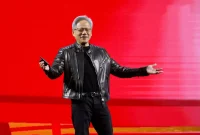OpenAI’s Open Model Release Postponed Until Late Summer
In an announcement made via X on Tuesday, Sam Altman, CEO of OpenAI, revealed that the launch of the company’s highly anticipated open model will be delayed until later this summer. Initially scheduled for an early summer release, the new timeline suggests the model will arrive after June.
Delayed Model Release
Altman conveyed the updated timeline in a succinct post, stating, “We are going to take a little more time with our open-weights model, i.e., expect it later this summer but not June.” He noted that the research team had unveiled remarkable developments that necessitated additional time before the model’s launch. Altman expressed confidence that the enhancements would justify the delay.
Competitive Landscape
OpenAI has positioned its open model to rival existing reasoning models in the industry, including DeepSeek’s R1. The anticipated open model is expected to exhibit similarities in reasoning capabilities to OpenAI’s previous O-series models, setting high expectations for performance and functionality.
As the AI field becomes increasingly competitive, other players are also making significant strides. On the same day, Mistral, another prominent AI laboratory, launched its first family of AI reasoning models, named Magistral. Earlier this year, the Chinese lab Qwen introduced a suite of hybrid AI reasoning models designed to balance quick responses with deeper reasoning processes.
Enhancements and Features
In addition to performance improvements, OpenAI is exploring the integration of advanced features within its open model to enhance competitiveness. Discussions within the organization have focused on the possibility of connecting the open model to the company’s cloud-hosted AI systems for handling more complex queries. However, the final implementation of these features remains uncertain as the release date approaches.
Importance of the Open Model
The unveiling of OpenAI’s open model holds significant implications for the company’s engagement with researchers and developers. Altman has previously indicated that OpenAI has been perceived as lagging in terms of open-sourcing its models. The pressure to introduce a competitive open model is particularly pronounced, as it aims to restore the company’s reputation within the AI community.
As the landscape evolves, the industry eagerly anticipates the details of OpenAI’s open model, which promises to contribute to ongoing advancements in artificial intelligence and maintain the competitiveness required in today’s fast-paced technological environment.




